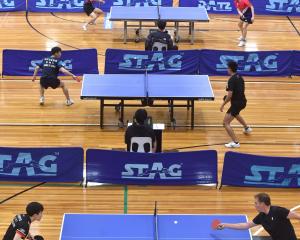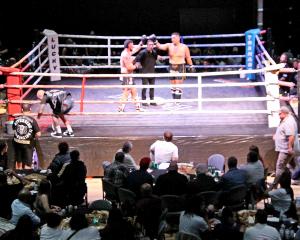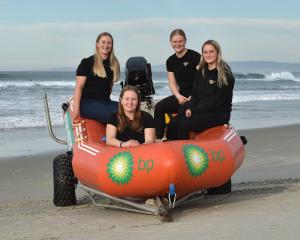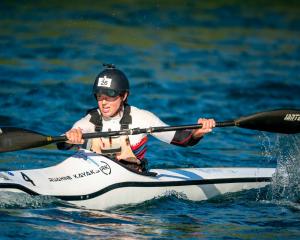Are sporting bodies turning a blind eye to problem gambling because of the estimated $120 million-$130 million gaming trusts provide each year? Reporter Adrian Seconi asks prominent administrators John Brimble and Richard Kinley their thoughts.
Both Sport Otago chief executive John Brimble and Otago Rugby Football Union general manager Richard Kinley want to be very clear about that point.
The big four gaming trusts - the New Zealand Community Trust, Southern Trust, Pub Charity and the Lion Foundation - provided more than $78 million in grants in 2012, and 89% of it was for sport.
The largest portion went to clubs and regional organisations.
All sports are not equal, of course, with 83% of funding going to just 20 sports.
And it is also worth noting 28% of the funding was paid to cover the cost of salaries for roles that were perhaps performed by volunteers in the past.
''If you withdrew that from the sector, it would just fall over,'' Brimble said.
''In order to maintain their sport and provide opportunities for the youth to participate, gaming is one of the avenues that they have to source and rely on for income.
''We have to accept that the gaming industry exists and there is an element within the population that become addicted to gambling and that is the negative side of it. That creates some real problems and issues.
''But we should not also overlook the benefits which flow from what returns back into the community from gaming.
''And apart from sport and recreation, there is the art and cultural side as well. There are very few parts of society that don't benefit in some part from the returns of the gaming industry.''
Kinley agrees.
''People are still going to gamble, no matter where the proceeds go,'' Kinley said.
''I think for some of that money to go back to the community is vital. Without the support of the gambling trusts, sport as you currently know it wouldn't be able to operate, in my opinion.''
Kinley is also the president of the Mornington Football Club, so has a solid grasp on what clubs need to survive.
''At Mornington, if we did not get some support from the local gaming trust ... then we'd have to put that cost on to the club members and it would and could well put the price of sport out of the reach of some families.
''Say it costs $200 for an under-12 to play rugby or whatever and you've got three children. Then you have to buy your boots and the other gear associated with it. It becomes pretty costly, so then children drop out.''
It is an argument that pulls at the heartstrings but is it a fair point?
Despite the gaming trusts' millions supposedly making sport more affordable, children were more active 30 years ago, cost did not appear to be an issue and, arguably, the community was more engaged with its sporting clubs.
Volunteers and committees reigned supreme. Chief executives stuck to commerce.
Gaming trusts filled the void left when tobacco companies were shown the red card and prohibited from sponsoring sporting events in the mid-1990s.
The relationship between tobacco and sport was obscene, but even so, many administrators feared the loss of funding would jeopardise the future of some sporting events.
Those fears proved unfounded. Sport survived, but its alignment with the gambling industry was to swap one set of ethical dilemmas for another.
Brimble and Kinley are acutely aware of the moral issues but believe the tradeoff is worth it. In their opinion, the whole social landscape has changed.
The cost of delivering sport has risen dramatically and it takes more than raffles, cake stalls and goodwill to make sport accessible to everyone these days.
TOMORROW: The TAB has its say.












